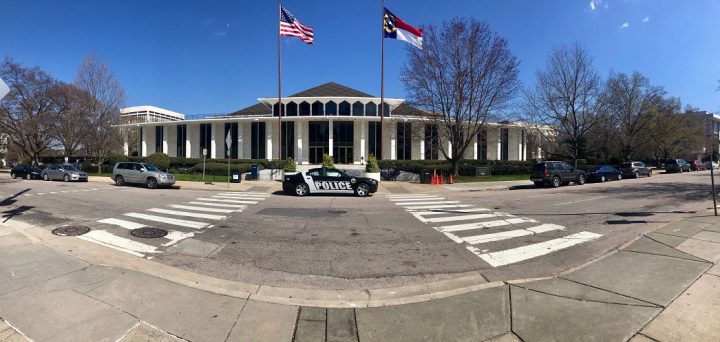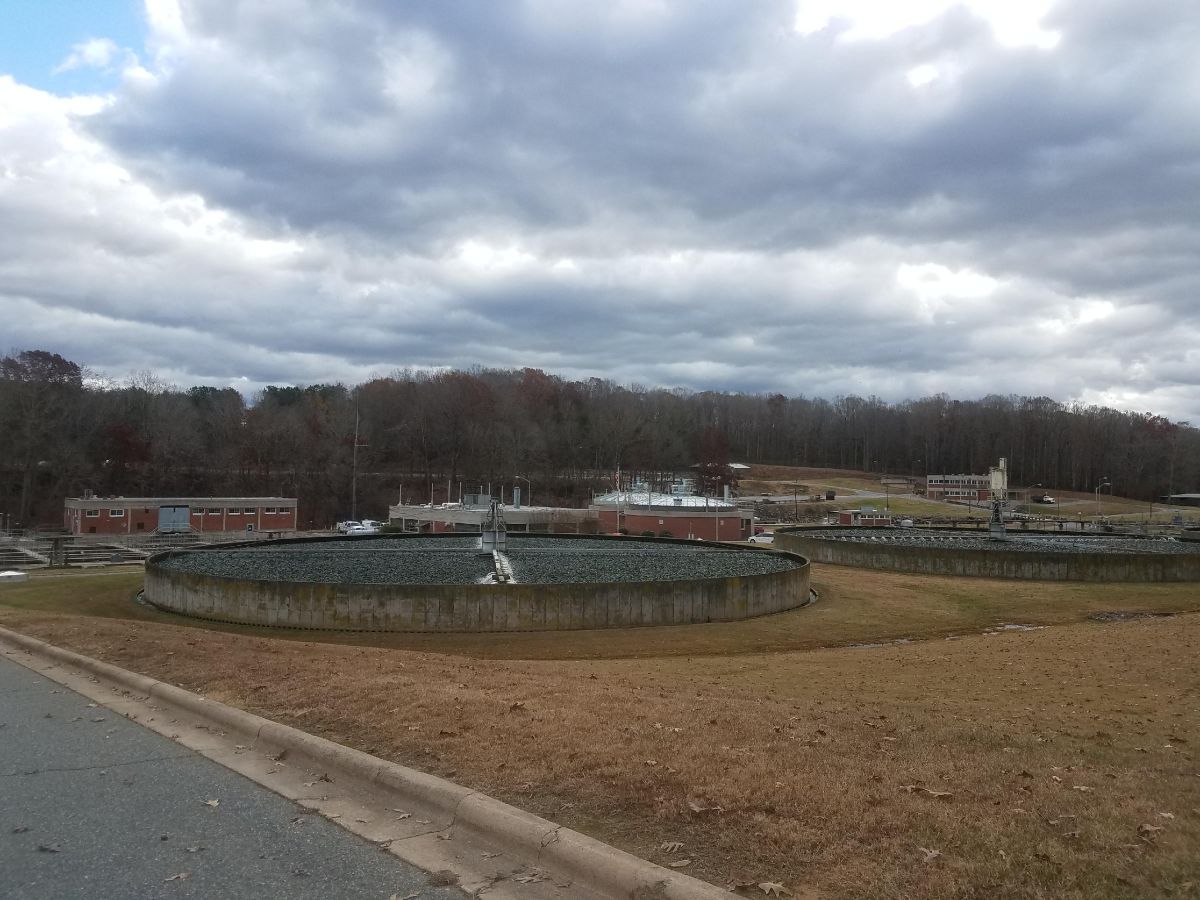
Updated 9:30 a.m. Tuesday to include 24 bills Cooper signed into law
Although the focus for the end of the short session was the ongoing fight between Gov. Roy Cooper and the legislative leadership over the state’s coronavirus response, several environmental and coastal provisions cleared the North Carolina General Assembly last week.
Supporter Spotlight
They include the final go-ahead for the Ocracoke-Hatteras passenger ferry, flood resiliency planning for eastern North Carolina and dredging, beach renourishment and shoreline funds, all bills that saw broad support.
The legislature adjourned last week without passing a new budget, despite the end of the state’s fiscal year Tuesday, instead passing smaller, targeted spending bills and relying on an automatic spending law until lawmakers return Sept. 3. Both spending and policy shifts were scattered in a series of omnibus bills hammered out at the end of the session.
One major shift in policy expands the use of the state Department of Environmental Quality Ecosystem Restoration Fund to include more projects designed to increase the amount of floodwater storage.
The provision sets up an inventory of natural and working lands that could become part of a new flood-control network. It creates additional incentives for private landowners to do stream restoration and wetlands enhancement to build flood stage capacity.
Speaking in support on the floor of the House June 25, Rep. Chuck McGrady, R-Henderson, said the idea is to use that additional capacity to take pressure off rivers and streams by temporarily flooding fields and natural lands to protect roads and buildings.
Supporter Spotlight
In a statement after the bill’s passage, Will McDow, resilient landscapes director with the Environmental Defense Fund, said natural solutions are often a faster, more cost-effective way to build capacity than levees or other hardened structures and could be helpful, particularly in cash-strapped communities hit by repeated flooding.
“This program expansion comes at a time when flood-prone communities across the state need increased assistance, especially those communities that have been marginalized and disadvantaged for too long,” McDow said.
The flood-control provision was tacked onto the end of legislation to address an increasing number of failing public wastewater systems.
The legislation, spurred by a special committee last year led by McGrady and Sen. Paul Newton, R-Cabbarus, sets up a carrot-and-stick approach for dozens of failing water systems, many of which are located in eastern North Carolina.
Under the new law, the state would be able to assume management of failing systems and work with local governments to restructure and repair the systems. It would also facilitate mergers and consolidations along with creation of more regional water authorities. More than two dozen systems are on a state watch list. The state took over two failed wastewater systems in the past year and with the new law and additional funding in place, takeovers are likely to accelerate.
Also added at the end of the water system bill was $15 million from the state’s shallow draft dredging fund to the state Division of Water Resources as the state match for roughly $90 million in federal funds. Projects include Morehead City and Wilmington harbor work and beach and shoreline projects in Kure Beach, Wrightsville Beach, Carolina Beach, Ocean Isle, Bogue Banks and Surf City, along with shoreline protection for North Topsail Beach.
Late-session rules push
Although much of the end-of-session legislation was stripped of more controversial sections, a few last-minute provisions did draw opposition, including proposed changes to oversight of executive branch rulemaking authority.
One provision gives more time for legislative challenges to new agency rules and another grants far broader authority over state policy making to administrative law judges.
That provision, stripped from a conference report after last-minute objections, would have given administrative law judges the power to “Determine that a policy, guideline, or other interpretive statement that a State agency has sought to implement or enforce is unenforceable,” if they determine it should have gone through a formal rulemaking process. The judge could then suspend the policy, order a refund of any fees collected and require the challenged agency to cover plaintiffs’ legal costs.
Derb Carter, director of the Chapel Hill office of the Southern Environmental Law Center, said the provision, which was pulled after objections from lawmakers, environmental organizations and the governor’s office, was an attempt to substantially expand the power of administrative law judges and give regulated industries another vehicle for slowing down or removing rules they don’t like.
“It raises another avenue to attack agency decisions,” he said. The legislature, he said, already has ample ability to undo those decisions. “At any time, if the legislature thinks that they ought to repeal or override a rule, they can just write a law.”
Another provision in the same bill rewrites the timeline whereby legislators can file bills to strike down specific agency rules. Under current law, just filing a bill stops a new rule from taking effect, a process that in recent years has been used to challenge or at least slow dozens of environmental rules. The new provision gives legislators more time by shifting the schedule for filing objections to an annual basis rather than only when the legislature is in session.
Carter said the change, an outgrowth of the legislature’s slow creep toward a year-round schedule, adds to the amount of legislative intrusion of an executive branch function.
“This is just an intrusion into what should be the authority of the governor to execute the laws in the interest of the people of the state,” he said. “The legislature is doing nothing but trying to impede this.”
The rule provision remained in the final version of the bill. Cooper has not announced whether he would sign the bill.
Cooper signs numerous bills
Cooper signed the following 24 bills into law:
- House Bill 1023: Coronavirus Relief Fund/ Additions & Revisions
- House Bill 1087: Water/ Wastewater Public Enterprise Reform
- Senate Bill 681: Agency Policy Directives/ 2019-2020
- Senate Bill 212: Capital Appropriations/ R&R/ Cybersec
- House Bill 1163: Guilford Funds/Cabarrus Land/Brunswick Shellfish
- Senate Bill 816: Community College Funds/Cooperative Innovative HS Funds/Coronavirus Relief Funds
- House Bill 32: Collaborative Law
- Senate Bill 733: UNC Capital Projects
- Senate Bill 817: Funds for UNC Enrollment Growth/ FY 2020-21
- House Bill 885: Only Allow Courts to Charge FTA Fee Once
- House Bill 1072: GSC Technical Corrections 2020
- House Bill 1064: GSC Clarifying Bingo License Statute
- House Bill 694: Designate Legacy Airports
- Senate Bill 739: Personal Delivery Device/PDD/Delivery Robots
- Senate Bill 208: COVID-19 Immunity/IHEs
- Senate Bill 217: UI/Precinct Workers/2020 General Election
- House Bill 308: Regulatory Reform Act of 2020
- Senate Bill 364: NC Commercial Receivership Act Revisions
- Senate Bill 813: UNC Building Reserve/ Certain Project/ FY 20-21
- Senate Bill 488: DMV/ MV Changes
- Senate Bill 361: Healthy NC
- House Bill 593: JCPC/ Detention/ CAA and Other Fees
- House Bill 471: Exempt Direct Primary Care from DOI Regs
- Senate Bill 782: Merchandise Sales Limit/ Meck Dist Ct







